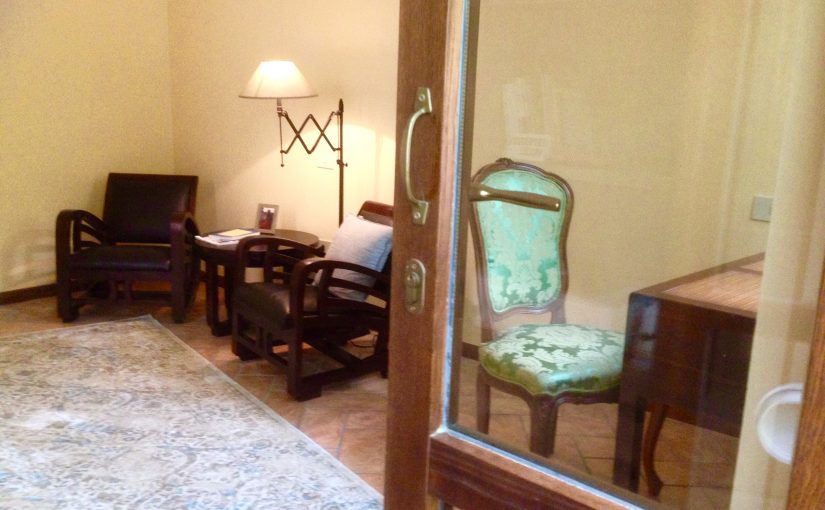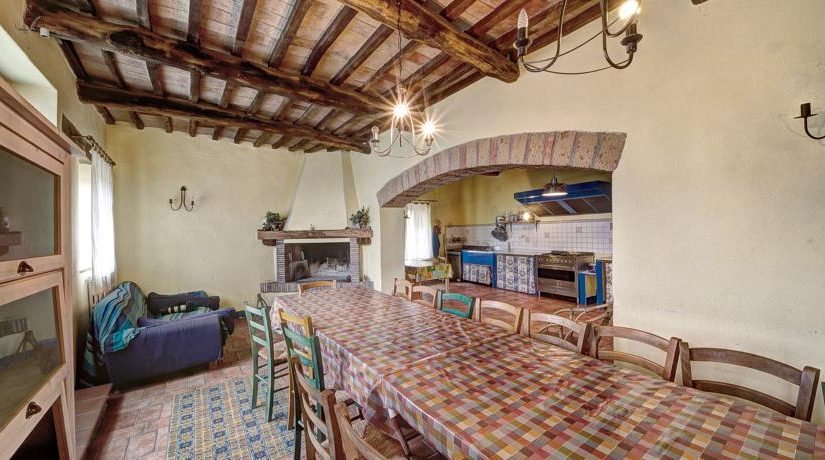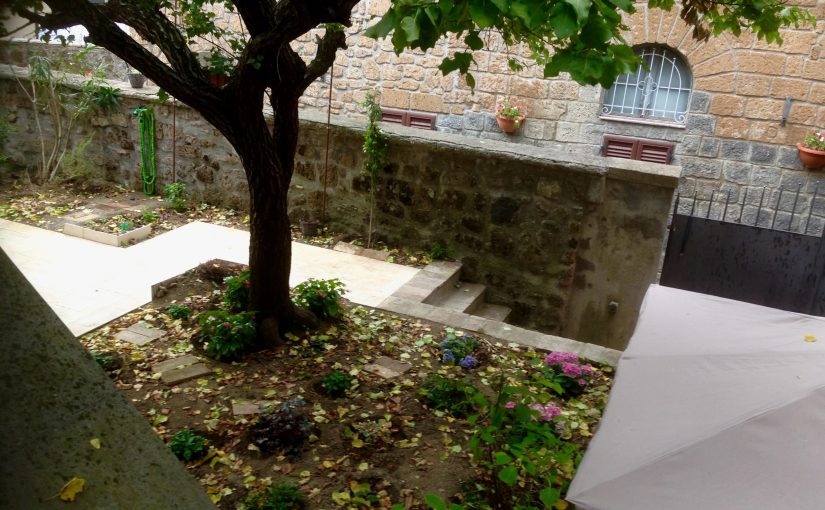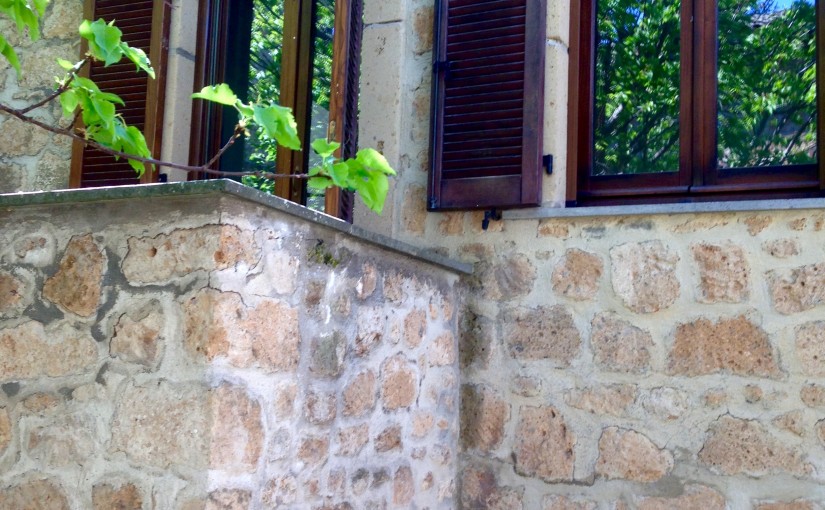The technological terrorist for anyone attempting to learn a new language is the telephone. At least it is for me. There are no facial expressions to aid understanding, no gestures, no body language. On the phone it is even that much more difficult and embarrassing (for me) to ask for the frequent repetitions I almost always need – at a slower rate and, ideally, in a less exotic accent – when you can’t look someone pathetically in the eye and plead old age, ignorance, or fatigue.
But when you are anticipating a scheduled delivery, there is no choice; the phone must be answered.
As I write this, I’m anticipating a delivery. I received a call from the courier about an hour ago. He said they would arrive around 3:30. That seemed reasonable in the moment. Of course, the delivery was appointed for 14:00 and the fellow who called was adjusting it to 15:30, but he didn’t say it that way, he said “three-thirty.” This created some confusion in my brain and I sat for forty minutes worrying about how he could arrive at 14:30 as it was already 14:30 when he called. Somehow I had not converted his “three-thirty” correctly into 24 hour time. Or something. Anyway, my mind was in a disturbed state. For a long time. Over nothing.
It takes a lot of guts to be relating this, I hope you appreciate that.
He will arrive exactly when he said he would at 3:30, of course, but I didn’t realize my error until 3:10, about five minutes ago. This allowed me to waste an otherwise perfectly good forty minutes fretting that I had somehow offended him, and that his last bit of conversation, which I believed to have meant “tell you what, we’ll see how navigable the street is when we get there,” was actually “tell you what, your damn street is too damn narrow, why don’t you just come and pick the damn stuff up yourself.”
I had committed the usually dreadful error of trying to make conversation. (I sometimes say stuff just to demonstrate that I can speak the language, at least after a fashion.) I energetically approved of his estimated arrival time, then offered a friendly warning that the street may be too narrow to come all the way to my house. This led to responses I did not understand, which led to my further attempts at urbanity. Which never work. They only confuse everyone involved. I finally said, after several what sounded to be urgent questions about street width versus truck width, “I’m sorry, I didn’t understand that last bit, at all.” That lead to his closing suggestion. Which I would have simply taken to be what it sounded to be; “lets not talk on the phone about something we need to be on site to know,” as I just mentioned. But when I answered “Grazie, bene, perfetto!” and that was followed by silence, a blip, a beep, and a click, it caused me to wonder how well I had interpreted his closing remark, and that rapidly morphed into speculations on cancelled delivery.
I conveniently forgot how unreliable voice service is alla mia casa.
Now, I sit. Seven minutes to arrival. Jiggling my leg. I also want to ask the couriers if they will, for a tip of course, move the divan on the upper floor down the outside steps to the lower. I hope they’re nice, jolly types, who have had a good day. I imagine outrage and disgust at my imperialistic American attitude, annoyance at my outdoor furniture which could be construed to be in their way, and incredulity at my taste in divans.
The other day I took the funicular down to Scalo and walked to the CIA, a housewares and clothing store, to buy sheets. The label for the pillowcases said “2 Capi,” and WordReference on my phone had nothing to add regarding what that meant. So, when I arrived at the checkout counter, I asked. The woman there spoke such clear, lilting Italian I wanted to ask her to dance. She didn’t dumb down or slow up, and I understood every word as she offered (and I giddily accepted) a CIA discount card good also for online shopping and gas. She then rifled through the five or six boxes of paper, each with many layers of forms and documents, that were cluttering the area an American would call the “bagging counter.” Her search continued as she described the marvels of the card I was about to receive. She filled out a form, conducted another search for an unassigned card, and pasted on a sticker that made it even more valuable. The card issuing accomplished, she proceeded to explain the packaging philosophy for bedding.
I intend to go back to CIA just for the experience of understanding what someone is saying to me. Remember this and speak clearly to immigrants. We’re all more or less the same.
Speaking of immigration, this past Monday I had my second visit with Alessandro the Intervenor for Immigrants, a title that makes him sound kind of like a saint, which he kind of is. At the previous meeting we had, he started in English and implied all the way through that my Italian had not progressed past ordering gelato. Then once we had finished business, he turned to me and said, in Italian “So, how was your summer?” I blinked. The sudden transition to Italian and personal threw me. He repeated the question in English. In Italian, I told him about the house, how all the wood surfaces had collected mildew and had to be washed, that the garden was weedy, but that working with one’s hands was satisfying. That wasn’t really my summer, that was my previous week, but at the moment it seemed, more or less, to be my summer. Alessandro cleared his throat and we bid farewell.
This time in, we started in Italian and stayed there. No more mention of Google translator for when I had to compose a document. Huzzah. I think my knowing the word for mildew may have turned the tide. Orvietani respect anyone who knows about mildew.
* * *
The delivery guys were just here. The main guy called again, and I managed to understand that I was to meet them in the piazza across from the carabinieri, so I did so and at a pace. They’re Romanian, which explains the accent. The older guy (about forty) speaks English, too. He’s smart, overworked, tired of it, but the consummate professional. In two trips they brought the furniture to my house with a hand truck, ingeniously and skillfully loaded, and delivered everything to place. They hauled away most of the really huge packing material. I was so grateful. All that cardboard needs to be fastidiously folded, taped, and stored for a week until paper day in the recycling calendar comes along, so having it off my hands is a huge gift. They moved the divan into place downstairs with the nimbleness and pride of veterans, saying nothing, negative or positive, of its shape or color. I gave them €20 for their trouble. They deserve that and more, but I fear seeming over-generous.
Now that they’ve left — as I survey the not unattractive but clearly not high-end furniture that was implied by the photographs — and begin to remove the protective layers, I have a sudden urge to thank those Romanian guys one more time. The technological terrorist turns friend; I send a text.
It is terribly important these days (or maybe any days) to recognize gratitude when it arises, and even more important to express it. To seek to be honest, fearless, generous, grateful, and kind is not just a matter of courtesy or good form, anymore, it’s about the survival of the species.



